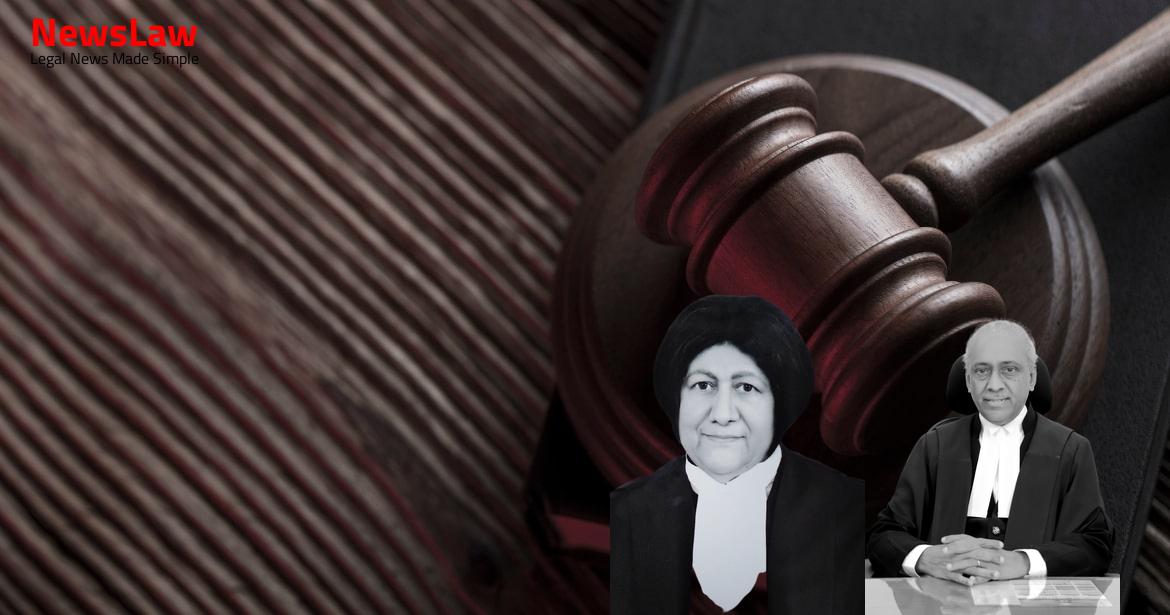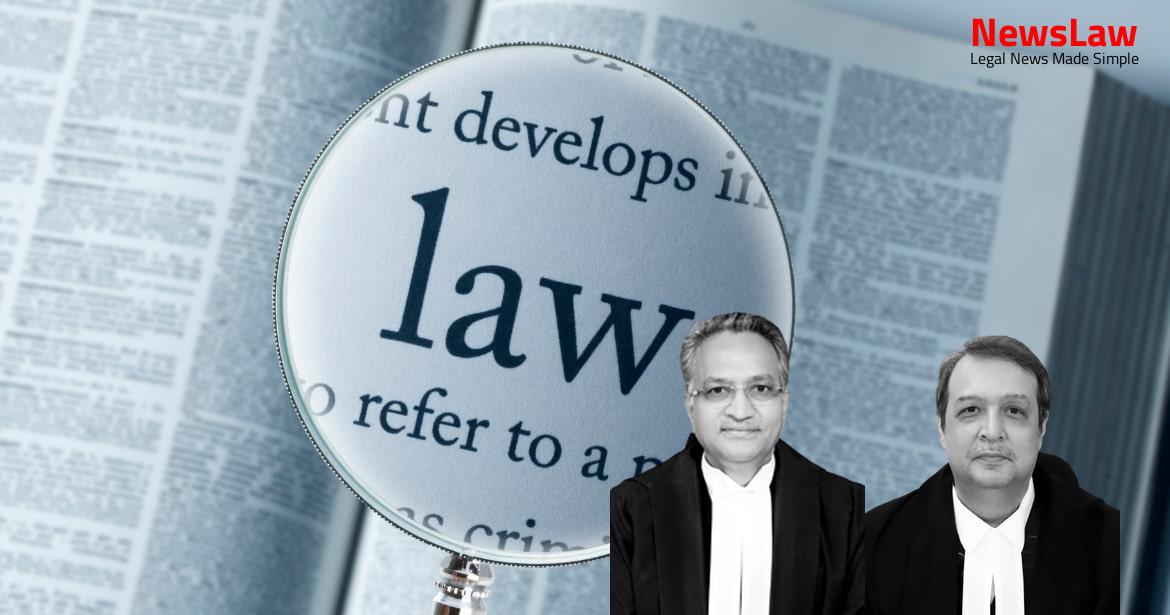In a recent legal case, the court emphasized the significance of delivering prompt and reasoned judgments. The focus was on upholding judicial discipline and ensuring accountability within the legal system. Timely justice serves the interests of all parties involved and reflects the essence of a fair and efficient judiciary.
Facts
- The original complainant/informant has filed the present appeals challenging the acquittal of the accused.
- The High Court of Judicature at Allahabad had passed a judgment and order on 30.03.2019 acquitting the accused.
- The appeals were heard by the court, and a reasoned judgment was delivered after a delay of approximately five months.
Also Read: Ruling on Circumstantial Evidence in Murder Case
Arguments
- Learned counsel appearing on behalf of the appellant heavily relied upon the recent decision of the Supreme Court in Civil Appeal No. 3564 of 2020 in the case of Balaji Baliram Mupade & Anr. versus The State of Maharashtra.
- The Supreme Court deprecated the practice of pronouncing the final order without a reasoned judgment.
- The appellant also referred to the case of State of Punjab & Ors. versus Jagdev Singh Talwandi, (1984) 1 SCC 596 and other decisions cited in the aforementioned case.
- The Supreme Court examined the case of Anil Rai versus State of Bihar, (2001) 7 SCC 318, where guidelines were issued regarding the pronouncement of judgments and orders.
Also Read: Challenging Legal Presumptions in Negotiable Instrument Cases
Analysis
- Judicial discipline emphasizes promptness in delivering judgments
- High Courts pronouncing final orders without reasoned judgments causes difficulties
- Difficulties arise when aggrieved parties appeal to higher courts without the benefit of reasoning
- Guidelines provided by the Supreme Court expect judgments within two months of conclusion of arguments
- Practice of pronouncing final orders without reasoned judgement should be discouraged.
- In this case, final orders were passed without a reasoned judgement.
- Despite previous strong observations by the Court dating back to 1984, the practice continues.
- The judgement was pronounced and uploaded after almost five months.
- The delay in uploading the reasoned judgment was noted from the record of proceedings.
Also Read: Legal Analysis Critique in High Court’s Quashing Order
Decision
- The impugned judgement and order dated 24.02.2012 passed by Additional District and Session Judge, T.E.C.P., Court No 1, Azamgarh in S.T. No 151 of 2009 is set aside.
- The accused need not surrender during the pendency of the appeals before the High Court and may be treated as released on bail.
- If the conviction is sustained, the accused must surrender within two weeks from the pronouncement of the judgment.
- Appellant Santosh Singh in Criminal Appeal No. 1083 of 2012 is on bail.
- Appellant Avdhesh Singh @ Chhunnu Singh in connected Criminal Appeal No 1178 of 2012 is in jail but shall be released unless wanted in another case.
- Both appellants must comply with the provisions of Section 437-A Cr.P.C. within one month.
- Present appeals are allowed to the extent mentioned.
- Registry is directed to return the record of proceedings to the High Court.
- The appeals are remanded to the High Court for fresh decision within six months.
- The impugned judgment and order passed by the High Court are set aside without delving into the merits of the case.
- Bail bonds of the accused are cancelled and sureties discharged.
- No order as to costs.
Case Title: INDRAJEET YADAV Vs. SANTOSH SINGH (2022 INSC 440)
Case Number: Crl.A. No.-000577-000577 / 2022



